- Clone
- HCD54 (See other available formats)
- Regulatory Status
- RUO
- Other Names
- ICAM-1, Ly-47
- Isotype
- Mouse IgG1, κ
- Ave. Rating
- Submit a Review
- Product Citations
- publications
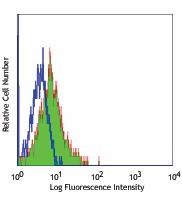
-

Human peripheral blood lymphocytes stained with HCD54 FITC.
| Cat # | Size | Price | Quantity Check Availability | Save | ||
|---|---|---|---|---|---|---|
| 322720 | 100 tests | 141€ | ||||
CD54 is a 85-110 kD type I transmembrane protein also known as ICAM-1. It is expressed on activated endothelial cells, high endothelial venules, T and B cells, monocytes/macrophages, granulocytes, and dendritic cells. The expression of ICAM-1 on the cell surface is potently upregulated by activation; a soluble form of ICAM-1 can be released from the cell surface. CD54 plays a role in cellular adhesion and is involved in inflammation and leukocyte extravasation. CD54 has also been shown to be the major cellular receptor for rhinovirus. ICAM-1 binds to CD11a/CD18 (LFA-1), CD11b/CD18 (Mac-1), CD11c/CD18 (p150, 95) as well as hyaluronan and fibrinogen.
Product DetailsProduct Details
- Verified Reactivity
- Human
- Reported Reactivity
- Chimpanzee
- Antibody Type
- Monoclonal
- Host Species
- Mouse
- Formulation
- Phosphate-buffered solution, pH 7.2, containing 0.09% sodium azide and BSA (origin USA)
- Preparation
- The antibody was purified by affinity chromatography, and conjugated with FITC under optimal conditions.
- Concentration
- Lot-specific (to obtain lot-specific concentration, please enter the lot number in our Concentration and Expiration Lookup or Certificate of Analysis online tools.)
- Storage & Handling
- The antibody solution should be stored undiluted between 2°C and 8°C, and protected from prolonged exposure to light. Do not freeze.
- Application
-
FC - Quality tested
- Recommended Usage
-
Each lot of this antibody is quality control tested by immunofluorescent staining with flow cytometric analysis. For flow cytometric staining, the suggested use of this reagent is 5 µl per million cells in 100 µl staining volume or 5 µl per 100 µl of whole blood.
- Excitation Laser
-
Blue Laser (488 nm)
- Application Notes
-
Additional reported applications (for the relevant formats) include: in vitro blocking of lymphoctes interaction1. The Ultra-LEAF™ purified antibody (Endotoxin <0.01 EU/µg, Azide-Free, 0.2 µm filtered) is recommended for functional assays (Cat. No. 322721 & 322722).
-
Application References
(PubMed link indicates BioLegend citation) -
- Evans HG, et al. 2009. Proc. Natl. Acad. Sci. USA. 106:6232. (Block) PubMed
- Product Citations
-
- RRID
-
AB_2121926 (BioLegend Cat. No. 322720)
Antigen Details
- Structure
- Type I membrane protein, Ig superfamily, 85-110 kD
- Distribution
-
Activated endothelial cells, high endothelial venules, T cells and B cells, monocytes/macrophages, granulocytes, dendritic cells. Cell surface expression upregulated upon activation; soluble ICAM-1 released from surface.
- Function
- Cellular adhesion, involved in inflammation and immune reactions. CD54 expressed on endothelial cells in areas of inflammation plays a role in leukocyte extravasation. Major cellular receptor for rhinovirus.
- Ligand/Receptor
- CD11a/CD18 (LFA-1), CD11b/CD18 (Mac-1), CD11c/CD18 (p150, 95) and has also been reported to bind hyaluronan and fibrinogen
- Cell Type
- B cells, Dendritic cells, Endothelial cells, Granulocytes, Macrophages, Mesenchymal Stem Cells, Monocytes, T cells
- Biology Area
- Cell Biology, Costimulatory Molecules, Immunology, Innate Immunity, Neuroscience, Neuroscience Cell Markers, Stem Cells
- Molecular Family
- Adhesion Molecules, CD Molecules
- Antigen References
-
1. Voraberger G, et al.. 1991 J. Immunol. 147:2777.
2. Staunton DE, et al.. 1988. Cell 52:925.
3. Greve JM, et al.. 1989. Cell 56:839. - Gene ID
- 3383 View all products for this Gene ID
- UniProt
- View information about CD54 on UniProt.org
Related FAQs
Other Formats
View All CD54 Reagents Request Custom Conjugation| Description | Clone | Applications |
|---|---|---|
| Purified anti-human CD54 | HCD54 | FC,ICC,Block |
| Biotin anti-human CD54 | HCD54 | FC |
| PE anti-human CD54 | HCD54 | FC |
| Alexa Fluor® 488 anti-human CD54 | HCD54 | FC |
| APC anti-human CD54 | HCD54 | FC |
| Pacific Blue™ anti-human CD54 | HCD54 | FC |
| Alexa Fluor® 647 anti-human CD54 | HCD54 | FC |
| FITC anti-human CD54 | HCD54 | FC |
| Ultra-LEAF™ Purified anti-human CD54 | HCD54 | FC,ICC,Block |
Customers Also Purchased
Compare Data Across All Formats
This data display is provided for general comparisons between formats.
Your actual data may vary due to variations in samples, target cells, instruments and their settings, staining conditions, and other factors.
If you need assistance with selecting the best format contact our expert technical support team.
-
Purified anti-human CD54
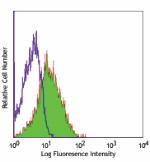
Human peripheral blood lymphocytes stained with purified HCD... 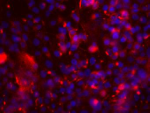
MDA-MB231 breast cancer cell line was stained with anti-huma... -
Biotin anti-human CD54
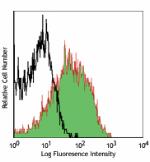
Human peripheral blood lymphocytes stained with biotinylated... -
PE anti-human CD54
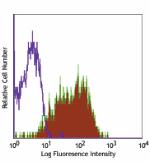
Human peripheral blood lymphocytes stained with HCD54 PE -
Alexa Fluor® 488 anti-human CD54
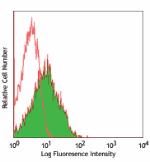
Human peripheral blood lymphocytes stained with HCD54 Alexa ... -
APC anti-human CD54
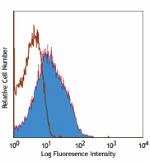
Human peripheral blood lymphocytes stained with HCD54 APC -
Pacific Blue™ anti-human CD54
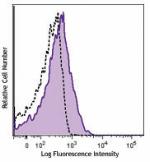
Human peripheral blood lymphocytes were stained with CD54 (c... -
Alexa Fluor® 647 anti-human CD54
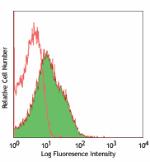
Human peripheral blood lymphocytes stained with HCD54 Alexa ... -
FITC anti-human CD54
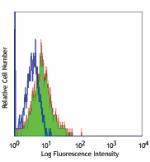
Human peripheral blood lymphocytes stained with HCD54 FITC. -
Ultra-LEAF™ Purified anti-human CD54
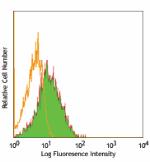
Human peripheral blood lymphocytes stained with Ultra-LEAF™ ... 
MDA-MB231 breast cancer cell line was stained with anti-huma...
 Login / Register
Login / Register 










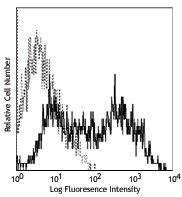
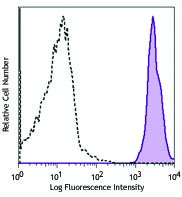
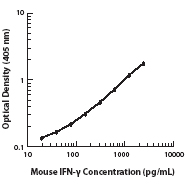
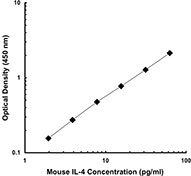



Follow Us